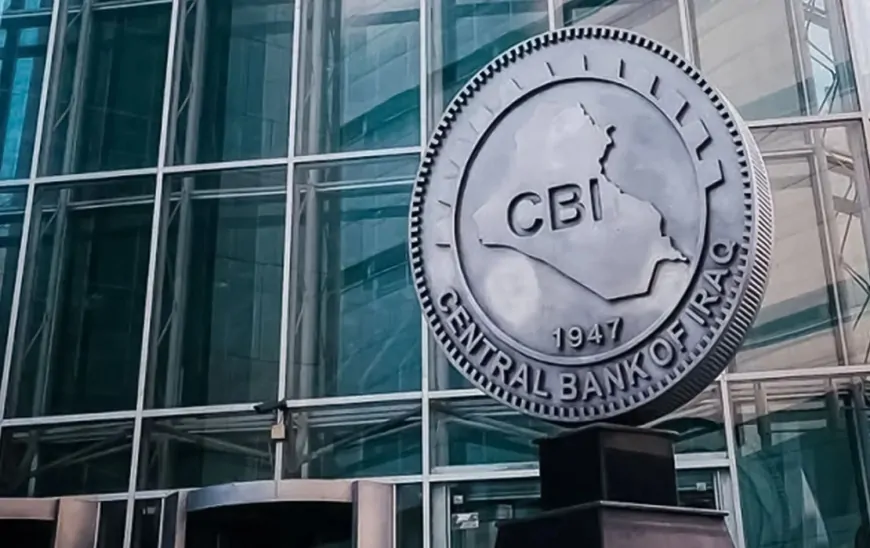Iraq to Ban Five More Banks from U.S. Dollar Transactions
Iraq's central bank will ban five more banks from U.S. dollar transactions to fight money laundering and dollar smuggling after talks with U.S. officials.

Iraq’s central bank is preparing to prohibit five additional local banks from engaging in U.S. dollar transactions following recent talks with U.S. Treasury officials. This decision is part of ongoing efforts to combat money laundering, curb dollar smuggling, and ensure compliance with international financial regulations, according to sources familiar with the matter.
These new restrictions come after meetings in Dubai between Iraq’s Central Bank, the U.S. Treasury, and the Federal Reserve. The move reflects Iraq’s commitment to aligning its financial system with U.S. standards to maintain access to global financial markets.
Banks and Payment Services Facing U.S. Dollar Restrictions
The five banks that will soon be barred from conducting U.S. dollar transactions are:
-
Al-Mashreq Al-Arabi Islamic Bank
-
United Bank for Investment
-
Al Sanam Islamic Bank
-
Misk Islamic Bank
-
Amin Iraq for Islamic Investment and Finance
Additionally, three payment service companies will also be affected by the ban:
-
Amawl
-
Al-Saqi Payment
-
Aqsa Payment
While these institutions are still allowed to conduct business in other currencies, losing access to U.S. dollars will severely limit their ability to perform cross-border transactions and engage in international trade.
Reasons Behind the U.S. Dollar Transaction Ban
The primary motivation behind Iraq’s decision stems from increasing pressure from the U.S. to crack down on illegal financial activities. With over $100 billion in oil revenues held in U.S. reserves, Iraq depends on maintaining positive relations with Washington to ensure continued access to these critical funds.
One of the key concerns driving these measures is Iran’s influence in Iraq’s financial sector. Iran, through its backing of Shi’ite militias and political groups, uses Iraq’s banking system to obtain hard currency and evade U.S. sanctions. U.S. President Donald Trump's renewed "maximum pressure" policy on Iran has intensified the focus on Iraq’s financial channels to prevent such activities.
A December report exposed a large-scale fuel oil smuggling operation, generating over $1 billion annually for Iran and its allies. This smuggling network, which expanded under Iraqi Prime Minister Mohammed Shia al-Sudani’s administration, raised further alarms in Washington, prompting tighter financial oversight.
Impact of the Dollar Ban on Iraq’s Economy
Restricting U.S. dollar access could disrupt Iraq’s economy by making it harder for these banks to facilitate global trade. Since many international transactions are conducted in dollars, this ban may lead to liquidity shortages, slow down imports and exports, and undermine investor confidence in Iraq’s banking sector.
As the second-largest oil producer within the OPEC group, Iraq relies heavily on the stability of its financial system. Any disruptions to the flow of U.S. dollars may have a ripple effect across the private and public sectors, further straining the country’s economy.
Furthermore, with the U.S. signaling stronger enforcement of sanctions against Iran, Iraq faces a challenging task of maintaining both its economic independence and its strategic alliances with key global players.
Ongoing U.S. Scrutiny and Previous Banking Restrictions
This recent action is not the first time Iraq has faced pressure to tighten its financial system. In 2023, the Central Bank of Iraq imposed similar bans on eight local banks following concerns over money laundering and illicit financial activities. These measures were enacted under U.S. pressure to curb the misuse of U.S. dollars.
The banks previously banned from U.S. dollar transactions include:
-
Al-Ansari Islamic Bank
-
Al-Qurtas Islamic Bank
-
Region Trade Bank
-
Al-Huda Bank
-
Iraqi Islamic Bank
-
International Development Bank
-
Al-Janoob Islamic Bank
-
Asia Al Iraq Islamic Bank
By extending these restrictions to more banks and payment service companies, Iraq is reinforcing its commitment to combating financial crimes and complying with U.S. regulations. However, the growing number of restricted institutions raises concerns about the long-term health of Iraq’s financial system and its ability to sustain international financial ties.
If Iraq’s compliance efforts fail to meet U.S. expectations, additional measures and further restrictions on Iraqi financial institutions may follow, increasing pressure on the nation’s economy and financial stability.
Also Read: Rising US Dollar Cuts Global Company Profits, Increases Financial Pressure






























































